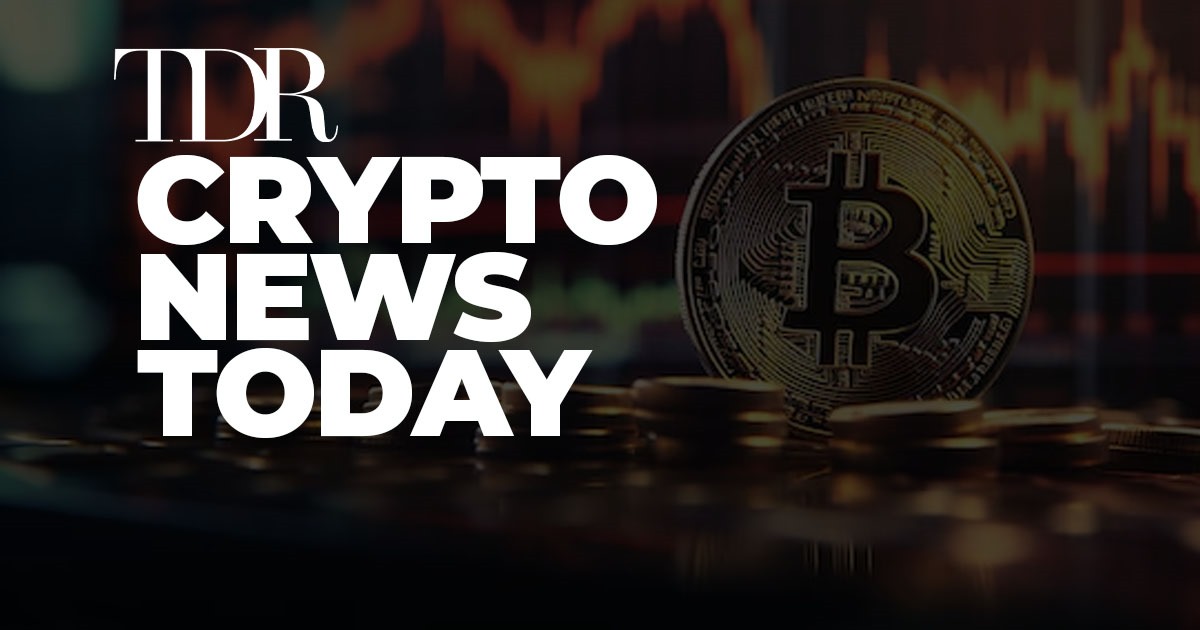Regulation
The World’s Best Crypto Exchanges And Marketplaces

After years of turbulence, including jail time for the founders of the two biggest cryptocurrency exchanges, many providers are getting serious about controls and regulation. Coinbase leads our list of the 20 most trustworthy marketplaces in an industry that still requires caution.
By Javier Paz, Forbes Staff
With the sentencing of former industry kingpins Sam Bankman-Fried and Changpeng Zhao, the cryptocurrency exchange business is by necessity moving toward a more transparent and compliant model.
The transformation has been made easier by a doubling in the price of bitcoin over the past year–it is now trading at $61,568-powered in part by the influx of about $11.8 billion into newly allowed U.S. exchange-traded funds based on the spot price of the cryptocurrency. These ETFs, offered by sponsors including BlackRock and Fidelity, are bringing new credibility to the digital-assets industry, whose reputation had been sullied by a string of bankruptcies in 2022 that culminated in the failure of Bankman-Fried’s FTX exchange. FTX was run in a criminally haphazard way, leading to the former CEO’s conviction on seven counts of fraud, money laundering and campaign-finance violations and a 25-year prison sentence.
Zhao’s Binance ran afoul of U.S. authorities and pleaded guilty to breaking anti-money laundering laws, as well as to unlicensed money transmitting and sanctions violations. The exchange had to pay $4.3 billion of restitution and Zhao himself admitted to a single charge of failing to implement an effective anti-money laundering program at Binance, for which he was fined $50 million and sentenced to four months in prison.
Binance remains the world’s largest cryptocurrency exchange by average daily trading volume, but you will not find it among the firms we ranked. We excluded Binance and Bitmex from our 2024 ranking because of their legal and regulatory infractions. Aside from its problems with the U.S., Binance was expelled from at least 17 countries in the past three years, including India, the U.K. and Japan. One of its reputational issues has to do with not having a fixed headquarters and therefore no home regulator for the majority of its business. Other large exchanges excluded from our ranking include OKX, MEXC and Kucoin due to lack of credible regulatory oversight and what we perceived to be weak internal controls.
Most of our 20 trustworthy exchanges are based in nations with significant oversight of their financial markets; the top three are all in the United States. We considered 646 exchanges and other kinds of marketplaces that allow investors to trade crypto and narrowed down the list based on nine different criteria (See full methodology at bottom).
Leading the 2024 ranking is publicly traded Coinbase, which is not only an exchange but a top cryptocurrency custodian. It has been entrusted with 13% of the world’s bitcoin and ethereum supply and 40% of all crypto assets held on exchanges, a key indicator of trustworthiness. It gets the highest possible score for regulation, although it is not without issues with government overseers. It is currently embroiled in court actions with the Securities and Exchange Commission, which considers almost all digital currencies other than bitcoin to be securities. It therefore considers Coinbase, which makes markets in no fewer than 260 tokens, to be an unlicensed broker dealer. But Coinbase’s issues are civil, not criminal, and it also gets top marks for the quality of its audits and for its acceptance among institutional investors. Coinbase also topped our 2022 list.
The runner-up is not properly a crypto exchange at all. CME Group is the largest regulated crypto marketplace and the closest thing to the arbiter of official bitcoin and ethereum prices. With roots in the old-school Chicago commodities markets, it has more than $2 trillion in U.S. Treasury futures, trillions in other asset classes, and more than $9 billion worth of regulated crypto futures contracts outstanding, the most in the world. ETF issuers such as ProShares as well as retail traders and hedge funds use the CME for hedging and speculating on future prices of bitcoin and ethereum.
In the world of cryptocurrencies, the difference between exchanges and brokers can often appear to be a matter of semantics. For most investors, cryptocurrency exchanges are indistinguishable from securities brokers. They are the middlemen you go through to buy or sell digital assets. With this in mind we have included discount stock broker Robinhood and Fidelity on our list. Robinhood’s has zero fees on crypto transactions compared to Coinbase, which charges a $6 to $17 fee per $1,000 of bitcoin purchased (price takers). Most other crypto exchanges on our list charge transaction fees, ranging up to 0.2%. Robinhood would have scored even higher but was held back by its lack of institutional traders and derivatives. Like Coinbase, it has come under scrutiny by the SEC.
The robust regulation in the U.S. stems from existing financial law supported by a legal court system, but Washington has been unable to pass any crypto-specific legislation. That is not the case in countries like Germany and Japan. Nations that have grown tired of companies asking for forgiveness rather than permission are taking steps to ban bad actors. Since the collapse of FTX, no fewer than 10 countries have passed crypto legislation seeking to identify unlicensed exchanges and create basic disclosure requirements and consumer protections. The 2023 Markets in Crypto Assets (MiCA) directive, the first piece of crypto legislation from a major economy, is going into effect this year in the European Union, with rules to ensure fair and orderly trading and objective criteria for the efficient execution of orders. Dubai launched its Virtual Assets Regulatory Authority (VARA) in 2023, administering spot and derivatives licenses that require exchanges to share information about large market exposure.
Forbes last ranked crypto exchanges in March 2022, and at the time CoinGecko indicated there were about 6,500 tokens. Today, the crypto count surpasses 13,000. Our ranking began with 646 exchanges identified by CryptoCompare, CoinMarketCap, CoinGecko and CryptoRank. We cut the list to 20 companies from 60 in 2022 with our main focus on compliance, solvency and security.
We also wanted to emphasize that market attention is primarily on bitcoin and ether, two assets that make up a combined 66% of crypto’s $2.36 trillion market capitalization. Bitcoin and ether represent roughly 76% of the $444 billion in assets held in custody by the exchanges and dealers on our list, while the remainder came from hundreds of smaller tokens. The opposite is true for many large exchanges that did not make the cut, like the unregulated MEXC and Gate.io, based in the Seychelles and Cayman Islands, respectively. For these excluded exchanges, bitcoin and ether represent just 33% of the assets they held in custody.
In an industry that is largely unregulated and unaudited and in which hacks are common, the most important job for exchanges is to keep tokens safe for investors. Our methodology reflects this goal. Each exchange had to meet a high regulatory threshold for inclusion, earning at least seven out of 10 possible points. (Note: Each category is graded on a scale from 1-10). There are seven U.S.-domiciled firms in our 20 exchange ranking, four each from Europe and Japan, two based in South Korea and one each from Singapore, Dubai and Hong Kong. The list includes firms across the board on pricing strategies and services offered. Some, such as Coinbase and Bitpanda, have relatively high transaction fees for retail traders, while others have employed low-cost strategies.
We included derivatives exchanges that specialize in trading options and futures, that give exposure to crypto assets via regulated financial contracts to reflect the growing importance of these products for bitcoin trading. We did not include decentralized exchanges, which operate without human intervention.
Forbes Crypto Exchange Rankings 2024
SCROLL RIGHT TO SEE THE FULL TABLE
The Top 20
#1. Coinbase
Among pure crypto exchanges, Coinbase is clearly the favored custodian for traditional institutions and it has benefited from the new spot bitcoin ETFs, eight of which use it to hold their crypto. At the end of the first quarter bitcoin and ether in custody rose to $219 billion. Retail fees are relatively high, averaging nearly 1.7%. Coinbase is the largest U.S. crypto exchange by trading volume and largest globally by assets held in custody.
#2. CME GROUP
Established in 1898 and formerly known as the Chicago Mercantile Exchange, the CME Group is the largest operator of financial derivative exchanges in the world. CME launched bitcoin futures in December 2017 and as of early May it had more than $8 billion worth of bitcoin futures contracts outstanding. ETF issuers such as ProShares and retail traders use the Chicago-based exchange for hedging and speculating on the future price of bitcoin and ether.
#3. Robinhood
This discount broker, famous for gamifying investing, allows its 23 million customers the ability to trade 15 cryptocurrencies. It began offering free crypto trading in 2018 in the U.S. and expanded to Europe late last year. The firm held $15 billion of cryptocurrencies in custody as of March 31.
#4. Upbit
Think of it as South Korea’s Coinbase, except that Upbit has gained dominance in trading with its low fees (5 basis points). Upbit, which is partly owned by one of Korea’s richest investors Song Chi-hyung, is the fourth-largest custodian of bitcoin among crypto marketplaces.
#5. Deribit
The world’s largest crypto options marketplace, Deribit also offers spot and perpetual-futures trading and the bitcoin equivalent of the equity market’s CBOE Volatility Index index. In the wake of the FTX debacle, the exchange moved its headquarters and operations from Panama to Dubai, which is known for its experience regulating crypto spot markets and derivatives. Deribit had $21 billion of bitcoin and ether options contracts outstanding as of May 10. Spot bitcoin trades are free but off limits to U.S. based investors.
#6. Bitstamp
This Luxembourg-based global crypto exchange was born in 2011 and unlike crypto rivals has taken a by the book approach to getting regulatory approval in every market it enters. It holds more than $3 billion in bitcoin and ether for clients.
#7. Crypto.com (tie)
This budding exchange, owned by its founders (Kris Marszalek, Rafael Melo, and Bobby Bao), spends big on marketing. In 2021, it spent $700 million for 20-year naming rights to the arena home of the Los Angeles Lakers, Clippers, Sparks and Kings. The exchange recently reported that it had 80 million clients globally, up from 10 million in 2021. Revenue was more than $1 billion in 2022, mostly from the U.S. The firm has laid off thousands of employees in the past two years.
#7. Kraken (tie)
Second-largest U.S. crypto exchange by trading volume. In 2023, the company laid off 30% of its workforce and founder Jesse Powell became chairman as part of a C-suite revamp. The SEC sued the company in November for failing to register as a securities exchange. Kraken moved to dismiss the case in February, claiming cryptocurrencies are not securities.
#7. Fidelity (tie)
Among traditional firms, the Boston asset manager with $13 trillion of assets has long been a crypto fan. Fidelity Crypto offers clients trading in bitcoin and ether at a spread of 1% (100 basis points) per trade. It also has a growing digital asset custody division. In January Fidelity began offering its Fidelity Wise Origin Bitcoin ETF (FBTC), which now has assets under management of $9.7 billion, the third-highest among the new U.S. funds.
#10. LMAX Digital
Founded in 2018, LMAX Digital is a Gibraltar-based regulated marketplace popular with hedge funds and high-frequency traders. It is one of six constituent exchanges used to generate the CME Group’s bitcoin futures prices. It operates its own custodian firm and is seeking additional licenses in the Eurozone and Singapore. Its standard fee for trading bitcoin is zero to six basis points, but it is not available to retail investors.
#11. Gemini
Created by billionaire twins Tyler and Cameron Winklevoss, this exchange has $13.9 billion in digital assets. During the last crypto runup in 2021, its Gemini Earn program became wildly popular by paying 8% interest on deposits. The program was shuttered during the crypto collapse, leaving customers in limbo. Thanks in part to rising markets, a settlement with New York State will give Gemini Earn customers back their entire $1.1 billion of investments and up to $700 million of lost earnings. Earlier this year, Gemini agreed to pay $98 million to settle civil action brought up by the SEC and New York authorities related to its Earn program.
#12. BitFlyer
The Tokyo-based exchange custodies the most crypto assets in its home market ($4 billion) and touts 0% to 0.1% trading fees. BitFlyer is regulated in Japan, the U.S, and Europe. It was founded with backing from Japanese insurance, banking, and brokerage giants like Mitsubishi UFJ Capital, SBI Investment, and Dai-ichi Life Insurance. The company re-appointed co-founder Yuzo Kano as CEO after an ownership and management spat was resolved in March 2023, and he stated plans to take the exchange public.
#13. Bitbank
Bitbank ot bitbank.cc (not to be confused with bitbank.com) operates in the competitive Japanese market and is one of the four largest crypto exchanges. Its taker fees, charged on bids placed at market prices rather than limit transactions, are 12 basis points, which are low but higher than its large peers. Part of its success can be attributed to its offer of 38 cryptocurrencies denominated in yen, of which bitcoin yen is the largest market. The exchange is audited by Deloitte Touche Tohmatsu.
#14. GMO Japan
Part of GMO Internet group, a technology-and-finance conglomerate that runs the largest retail foreign-exchange service in the world. The exchange traded nearly $10 billion in digital assetstin April. GMO offers Japanese clients 26 cryptocurrencies in yen alongside 14 foreign currency pairs to enable investing in multiple fiat currencies and crypto at zero fees. It also provides lending and staking services.
#15. Paxos
Operates the itBit exchange, issues stablecoins, and creates crypto infrastructure that enables large clients like PayPal, Nubank and Interactive Brokers to trade crypto and offer clients custody. Paxos is regulated by New York State and has a payments firm license from the Singapore and Abu Dhabi authorities. The firm suffered in 2023 when New York asked it to terminate its Binance USD (BUSD) stablecoin due to inadequate supervision of Binance’s own version, which existed alongside the Paxos-minted tokens. In late 2023, it introduced PYUSD, a regulated stablecoin by the NY Department of Financial Services, in partnership with e-payments giant PayPal.
#16. Luno
Owned by Digital Currency Group, Luno is licensed in seven international jurisdictions (though not the United States) and offers monthly audited attestations of its holdings (attestations are less stringent than audits) . It is known for its simple wallet, or trading interface, with 26 crypto trading pairs on offer. Its transaction volume, however, is on the low side. Fees vary widely, with 10 basis points in Europe and Uganda, 21bp in Indonesia, but 60 bp in South Africa, Nigeria and Malaysia.
#17. Bithumb
Seoul-based and regulated Bithumb is the second-largest crypto exchange by volume and assets serving South Korea. It offers 288 spot coins and 297 trading pairs, mostly against the won. Bithumb is a low fee leader. It normally charges 4 basis points, but in the final months of 2023 it ran a free trading promotion. Still, Bithumb has been profitable for years. Its low cost, regulated status, and wide spot offering have generated a loyal following.
#18. HashKey Exchange
In November 2022, as crypto volatility was spiking, HashKey was securing a crypto exchange license from the Hong Kong Securities and Futures Commission, known for its rigorous standards. The digital asset exchange, which is also a full service securities brokerage, is part of the Hong Kong’s HashKey Group, a diversified financial services firm with offices in Tokyo and Singapore.
#19. Bitpanda
Vienna-based Bitpanda is regulated as a payments firm, e-money provider and virtual-asset provider in Austria and France, allowing it to offer its services to all of continental Europe. It combines crypto services with traditional brokerage of stocks, ETFs, indexes, precious metals and other commodities. It charges a stiff 1.5% in commissions or fees for entering into transactions.
#20. Coincheck
One of the top four Japanese exchanges, despite a major black eye in 2018 when thieves stole $530 million worth of NEM tokens, the fourth-biggest hack in crypto history. Dipping into its own treasury, Coincheck made its customers whole and has since rebuilt its reputation. It holds more than $3 billion in client assets today. Its current offering is limited to eight crypto assets traded against the yen, and fees are low/free depending on the pair. It plans to go public on Nasdaq via a special-purpose acquisition company transaction in 2024.
Crypto Investing: Rules To Live By
1. Don’t fall for slick websites.
The crypto exchange business has few barriers to entry. It doesn’t take much more than creating an impressive looking website, social media profile, and securing a handful of digital wallets. Assets and trading activity can be easily faked. In 2022 we published a research project showing that half of all bitcoin trading activity was likely fabricated. The risks are even higher for investors trading second and third tier tokens, which are a specialty of the lesser quality digital asset exchanges.
2. Verify, don’t trust.
Before depositing your capital at an exchange, its a good idea to investigate it with reputable data providers like Arkham and Defillama say about the assets the exchange holds in custody. If they report less than $100 million in real assets (bitcoin, ether), steer clear. Also, be very wary of any exchange-reported trading data (ie self-reported) , which is often inflated.
3. Check licenses
Crypto-specific licenses are no guarantee of safety and solvency. But more likely than not, having licenses shows that a firm is committed to transparency and complying with rules. You can also verify a license reported on an exchange’s website with the issuing authority. It is important to do so because there have been multiple false claims.
4. Don’t just accept high fees
Users paid nearly 2% in commissions or fees in 2023 to trade at Coinbase compared with near-zero fees trading crypto at Robinhood, LMAX Digital, and several Japanese exchanges. Whether its stock index fund investing or hyper-crypto trading fees eat into returns. We gave affordability has a 10% weighting in our rankings.
5. Crypto trading is more concentrated than it appears.
There may be more than 600 firms offering crypt trading, but Coinbase currently has custody of 44% of all bitcoin and ether held at exchanges. While it is a reputable company with a long audit history from Deloitte, keeping most of your assets at one service provider is never prudent. Consider spreading the wealth around.
6. Forget about fad or so called “memecoins.”
While regulators in some markets–Hong Kong, Japan and South Korea, for example–limit which tokens can be listed on their exchanges, other jurisdictions have few or no barriers. Exchanges will list nearly anything with customer demand as long as they believe that an asset is technically secure and not a security, regardless of whether a token has utility. Buying joke tokens, is not investing, it is speculating or gambling and the only thing that gives these tokens value is the existence of a fool greater than you willing to pay a higher price.
7. Don’t sweat the SEC (for now).
Given that crypto has been especially susceptible to frauds and hacks, the SEC, which is charged with investor protection, is understandably not a fan of crypto companies. In the past few years it has launched suits against Binance, Coinbase, and Kraken. Now, it has issued warnings of likely actions to Uniswap Labs (primary developer of the eponymous decentralized exchange) and Robinhood Crypto. Except for Binance, these exchanges are primarily being sued for failing to register as national securities exchanges under the Securities and Exchange Act of 1934, not for overtly deceptive practices. This is why Coinbase, Robinhood and Kraken are prominent in our rankings.
Methodology
The 2024 Forbes list began with a multi-month study of 646 crypto exchanges listed by sources including CoinMarketCap and CryptoCompare. We concluded that 74% of them lacked sufficient assets under custody to be considered for our list, using data from analytics specialists like Arkham and Defillama. Additional checks for those vetted more thoroughly included products offered on their websites, trading volume, traffic volume and regulatory history, if any. Forbes then evaluated each firm on the list in nine categories on a scale from 1 to 10. The scores were then tallied and weighted by the percentages in the second row of the ranking table above to obtain a composite final score.
BTC+ETH
Represents total holdings of bitcoin and ether. For derivatives exchanges like Deribit and CME, we are counting open interest.
10: $50+ Billion
8: $10B–$49B
6: $5–$9.9 billion
4: $1B–$4.9B
2: $0.5B–$0.9B
1: $0.1B–$0.49B
TRANSPARENCY
Forbes sent a survey to pre-selected firms. Transparency points were earned based on the number of successful responses to questions.
10: 25-28
8: 20-24
6: 15-19
4: 10-14
2: 5-9
0: 0 response
REGULATION
Points earned based on quantity and type of license, combined with reputation of home regulator.
7: Designated Contract Market
2: Virtual asset service provider
3: Payments firm
2: Money transmitter firm
3: Broker dealer
3: Crypto exchange
COST
Points were awarded based on lowest cost entry point for retail investors. Cost is measured in ‘basis points.’ Each basis point is equal to one hundredth of one percent.
10: 0-5bp
8: 6-10bp
6: 11-20bp
4: 20-30bp
2: 31-50bp
0: More than 50bp
AUDIT STRENGTH
Firms evaluated based on auditor quality and years under audit.
10: 5+ years, Big 4 (Deloitte, E&Y, PWC, KPMG)
7: 1-4yrs Big-4
3: Non big-4 audit
2: Pending first audit
0: No audit
INSTITUTIONAL CLIENTS
Top points earned for serving as a reference rate provider to the CME for pricing derivatives clients. Large institutional client base earned a half-score.
10: CME Constituent exchange
5: Has institutional clients
0: Retail only
SPOT VOLUME
Points earned based on average daily spot volume (ADV).
10: $1+Billion ADV
8: $500M-$999M ADV
6: $250M-$499M ADV
4: $100M-$249M ADV
2: $50M-$99M ADV
0: Less than $50M ADV
CRYPTO PRODUCTS
Points given based on variety of product offerings.
2: Crypto futures/options
1: Crypto perpetuals
2: Crypto stocks
2: Crypto ETFs
3: Spot crypto
1: Lending / Staking
DERIVATIVES VOLUME
Points given based on average daily derivatives volume (ADV).
10: $5+B ADV
8: $1B-$4.9B ADV
6: $500M-$999M ADV
4: $250M-$499M ADV
2: $50M-$249M ADV
0: Less than $50M ADV
MORE FROM FORBES
ForbesDubai Unlocked: Inside The Secret Billionaire HideawaysBy Giacomo TogniniForbesHow Much Is Stormy Daniels Making Off Donald Trump?By Zach EversonForbesMeet The Greek Shipping Billionaires Getting Rich Off Russian OilBy Giacomo TogniniForbesBuffett’s 2024 Investment Wisdom: Psychology Matters As Much As FinancialsBy John DoboszForbesThis Pandemic Boom Town Is Also A Surprisingly Wonderful Place To RetireBy Emily Mason
Source
Regulation
South Korea Moves to Delay Cryptocurrency Tax Until 2028 Amid Market Concerns

South Korean lawmakers have proposed a bill to delay the tax on cryptocurrency earnings until 2028.
The ruling political party proposed the bill on July 12, citing current negative sentiment around the cryptocurrency sector as the reason for the extension. declared:
“With investor sentiment toward virtual assets deteriorating, some argue that hasty taxation of virtual assets is not desirable at this time, as virtual assets are high-risk assets with a higher risk of loss than stocks, and if income tax were also imposed, it is expected that most investors would abandon the market.”
South Korea had originally planned to implement its cryptocurrency earnings tax on January 1, 2025. However, if the new bill is passed, the implementation date will be moved to January 1, 2028. The subcommittee met on July 15 to continue the review.
The move is in line with President Yoon Suk-yeol’s campaign promisesHe assured voters that he would extend the cryptocurrency earnings tax during the last general election if elected. His administration aims to create a clear regulatory framework before implementing the tax.
However, the Ministry of Economy and Finance has not yet decided on the postponement. The ministry plans to announce new amendments to the fiscal policy by the end of the month.
“No decision has been made on further postponing the implementation of taxation of income from virtual activities,” a ministry spokesperson said. She said.
South Korea’s Thriving Cryptocurrency Industry
South Korea is one of the fastest-growing countries in the world in adopting this emerging sector.
In the first quarter of this year, blockchain platform Kaiko reported that the Asian country’s national currency, the Won, emerged as the leading currency for global cryptocurrency trading, with a cumulative trading volume of $456 billion across centralized exchanges.
Furthermore, the Asian country is a shining light for its proactivity approach to cryptocurrency regulationSouth Korea has implemented different rules designed to improve consumer protection standards for cryptocurrency users in its jurisdiction.
Latest stories from South Korea
Regulation
ESAs consult on guidelines for cryptocurrency regulation

THE European Supervisory Authoritiesincluding EBA, EIPA and ESMA, have published a consultation paper on guidelines under the Markets in Cryptocurrencies Regulation (MiCAR).
In doing so, the ESAs intended to develop templates for legal explanations and opinions regarding the classification of cryptocurrencies along with a standardized assessment to support a common approach to classification. In addition, the current move is intended to assist market participants and supervisors in accommodating a standardized test while receiving legal explanations and opinions that provide descriptions of the regulatory classification of cryptocurrencies in different cases. Among them, the ESAs mention:
-
Asset-Referenced Tokens (ART), whose white paper for their issuance must be accompanied by a legal opinion that highlights the classification of the crypto-asset, especially with regard to the fact that it is not an electronic money token (EMT) or a crypto-asset that could be excluded from the scope of MiCAR;
-
Cryptocurrencies that are not considered ART or EMT under the Regulation, for which the white paper must be accompanied by an explanation of the classification of the cryptocurrency, in particular information that is not an EMT, ART or a cryptocurrency are excluded from the scope of MiCAR.
As part of the press release, the ESAs mention that the consultation paper can be submitted directly from the consultation page, with a deadline for submissions of 12 October 2024. After holding a virtual public hearing on the consultation paper on 23 September 2023, the authorities are ready to publish all contributions, unless otherwise requested.
Background
In an effort to establish a framework for the provision of crypto-asset services, MiCAR develops regimes to regulate the issuance, supply to the public and admission to trading of EMT, ART and other crypto-assets. The draft was created under Article 97(1) of MiCAR, which requires authorities to jointly provide by 30 December 2024 the Guidelines pursuant to Article 16 of the ESA Regulations (EU Regulation) No. 1093/2010 Regulation 1094/2010, Regulation 1095/2010) to specify the content and form of the explanation accompanying the white paper on crypto-assets referred to in Article 8(4) and the legal opinions on the qualification of asset-referenced tokens (ARTs) referred to in Article 17(1), point (b)(ii) and Article 18(2), point (e) of MiCAR.
In addition, ESAs are required to include in the Guidelines a model for explanation and opinion and a standardized test for the classification of cryptocurrencies. At the time of the announcement, this was the only joint policy mandate of ESAs developed under MiCAR.
Regulation
Cryptocurrency News Today – July 15, 2024

Welcome to “Crypto News Today”, your daily digest of the cryptocurrency industry.
Bitcoin ETFs surge amid price recovery, market fluctuations
Bitcoin ETFs have seen their best weekly inflows since May, with $882 million in the week ending July 11. Bitcoin’s price has recovered to around $62,000, up 15% from its recent low, reflecting renewed investor interest and market optimism. To learn more, visit the TDR website!
Bitcoin Surpasses Leveraged ETFs
Bitcoin’s price has outperformed risky leveraged ETFs like BITX and BITU, demonstrating the cryptocurrency’s relative stability in a volatile market. Investors are increasingly favoring direct Bitcoin holdings over complex financial products.
SEC Closes Investigation into Hiro Systems
The SEC has concluded its three-year investigation into Stacks developer Hiro Systems without taking any enforcement action. The move brings relief to the company and its shareholders, potentially increasing confidence in the Stacks ecosystem.
Genesis Transfers 760 Million BTC to Coinbase
Amid a market sell-off, Genesis advanced $760 million in Bitcoin to Coinbase. The large transfer has raised speculation about potential trading strategies or liquidity by the digital asset company.
JP Morgan-Backed Partior Closes $60M Series B
JP Morgan-backed blockchain firm Partior has successfully closed a $60 million Series B funding round. The funds will support Partior’s mission to simplify cross-border payments and advance blockchain-based financial solutions.
Cryptocurrencies Become The Theme of 2024
Cryptocurrencies have emerged as a key issue in the 2024 political landscape, with parties and candidates debating regulation, innovation, and the future of digital currencies. This trend underscores the growing importance of cryptocurrencies in economic and political discussions.
Read more cryptocurrency news on the TDR website!
Regulation
How Cryptocurrency Firms Are Capitalizing on MiCA’s Bumpy Launch – DL News

- The MiCA licensing regime will come into force at the end of December.
- Levels of severity vary from country to country.
- This will create opportunities for companies to engage.
Stablecoin laws have already come into force, but EU countries are rushing to comply with the rest of the Union’s new cryptocurrency regulation before the deadline.
The EU regulatory framework requires cryptocurrency businesses such as exchanges to choose a country in which to apply for a license. In practice, countries will inevitably have different levels of stringency.
The Markets in Crypto-Assets regulation is designed to introduce a level playing field across the EU, as national regulators will have to adhere to the same set of standards. Once licensed, crypto-asset service providers, or CASPs, can move their services anywhere in the bloc.
Additionally, countries are allowed to opt for longer transition periods before enforcing the MiCA rules. This is known as the grandfathering period.
All of this could call into question the level of compliance in some countries.
— Ernest Lima, XReg Consulting
That creates opportunities for cryptocurrency firms to seek out jurisdictions with lighter rules and less enforcement, said Ernest Lim, a partner at consultancy XReg. DL News.
“Cryptocurrency companies registered or licensed in different EU member states may be subject to different requirements” between January 2025 and July 2026, Lima said.
Due to time and capacity constraints, some local regulators may have difficulty processing applications in time for the deadline, he added.
“Some may not even have sufficient resources to adequately supervise licensed CASPs,” Lima said.
Join the community to receive our latest stories and updates
“All of this could call into question the level of compliance in some countries.”
Companies are already exploiting the patchy way MiCA regulations are enforced in the EU, in a practice known as regulatory arbitrage, Lima said.
Just the beginning
MiCA’s stablecoin laws went into effect on July 1st, marking the start of the launch.
The next stage is the MiCA licensing regime for cryptocurrency businesses, including exchanges, custodians and investment firms, which will come into force on December 30.
Although the new rules will be stricter, CASPs registered in one country will be able to offer their services throughout the EU27 under the MiCA ‘passporting’ provisions.
Some countries with simpler registration requirements already have significant numbers of VASPs on their registers.
Lima said he expects the number of CASPs in Europe to consolidate significantly, especially in those countries.
In countries with more flexible regulators, companies can benefit from a relatively simple registration process to enter Europe.
According to XReg data, for example, Lithuania has 588 VASPs, while Germany has 12.
Transition period
The MiCA safeguard period will also impact where companies apply for licenses, Lima said.
The grandfathering period is a transition starting on December 30, during which companies can switch to the more stringent CASP regime.
Countries can grant cryptocurrency firms up to 18 additional months from December 30, although the EU securities watchdog recommends a 12-month safeguard period.
In assessing how much time to give companies to transition to the CASP regime, countries will have considered “how prepared they are internally to process applications, the gap between MiCA and their current regime, and the number of companies currently registered in their jurisdictions, all of which influence the workload associated with the transition,” Lima said.
Some countries have announced their transition, others have not, he added.
Among those who have announced:
- France will allow a ramp-up period of 18 months. The country already has a regime similar to MiCA in place.
- Many countries, including Ireland, Germany, Spain and Austria, are opting for the recommended 12-month transition.
- Lithuania, which has very lax AML requirements and a large number of registered VASPs, has been at a standstill for five months.
- The Netherlands will implement the MiCA regime on 30 December and is already accepting applications.
Strategie
Lima said that cryptocurrency companies are evaluating different strategies to take advantage of this uneven distribution.
Some companies are aiming to comply as soon as possible, by December 30, which means they will be the first to avail themselves of passporting rights and gain market share in the EU.
“Others are opting to file multiple applications in EU jurisdictions,” he said.
This approach allows a firm to benefit from a transition period in a trusted jurisdiction while working on a MiCA application.
However, he said that time was running out: local regulators were preparing to start the MiCA application process.
“Soon there will be no more time to process new applications.”
Lima said some companies have no intention of ever complying with MiCA.
Instead, they chose to continue working as long as possible before closing their businesses for good.
Contact the author at joanna@dlnews.com.
-

 News1 year ago
News1 year ago“Captain Tsubasa – RIVALS” launches on Oasys Blockchain
-

 Ethereum1 year ago
Ethereum1 year agoComment deux frères auraient dérobé 25 millions de dollars lors d’un braquage d’Ethereum de 12 secondes • The Register
-

 News1 year ago
News1 year agoSolana ranks the fastest blockchain in the world, surpassing Ethereum, Polygon ⋆ ZyCrypto
-

 Videos1 year ago
Videos1 year agoIs Emorya the next gem💎 of this Bitcoin bull run?
-

 Videos1 year ago
Videos1 year agoHistoric steps for US cryptocurrencies! With a shocking majority vote!🚨
-

 News1 year ago
News1 year agoSolana Surpasses Ethereum and Polygon as the Fastest Blockchain ⋆ ZyCrypto
-

 Videos1 year ago
Videos1 year agoNexus Chain – Ethereum L2 with the GREATEST Potential?
-

 Ethereum1 year ago
Ethereum1 year agoScaling Ethereum with L2s damaged its Tokenomics. Is it possible to repair it?
-

 News1 year ago
News1 year agoFnality, HQLAᵡ aims to launch blockchain intraday repositories this year – Ledger Insights
-

 Regulation1 year ago
Regulation1 year agoFinancial Intelligence Unit imposes ₹18.82 crore fine on cryptocurrency exchange Binance for violating anti-money laundering norms
-

 Bitcoin1 year ago
Bitcoin1 year agoBitcoin Drops to $60K, Threatening to Derail Prices of Ether, Solana, XRP, Dogecoin, and Shiba Inu ⋆ ZyCrypto
-

 News1 year ago
News1 year agoSendBlocks Debuts with Major Support to Improve Blockchain Data Management





















